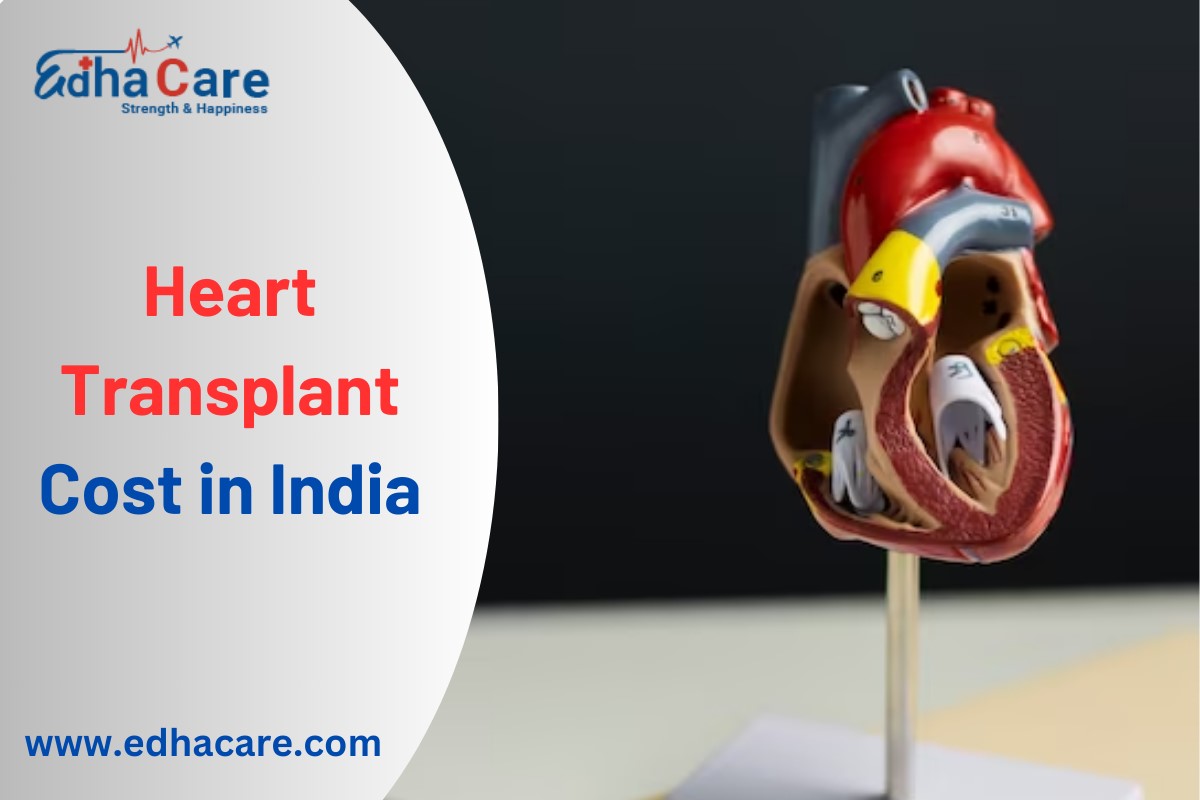The cost of heart transplant in India is not just about the surgery itself. It is a complete journey that includes diagnosis, organ matching, surgery, ICU care, medications, and long-term follow-ups. This makes every patient’s cost slightly different. However, India is known for offering high-quality treatment at a cost that is far more affordable than many other countries. This is why thousands of international patients come to India each year for heart transplants.
On average, the heart transplant cost in India ranges between USD 55,000–65,000, depending on the hospital, medical team, patient’s condition, and duration of treatment. Even with advanced technology and expert care, the cost remains budget-friendly compared to the USA, UK, or the Middle East, where the same procedure can cost three to four times more.
Why Heart Transplant Costs Vary Between Patients
Every patient begins the transplant journey with a series of tests and evaluations. This helps doctors confirm whether the patient is fit for surgery and what kind of care will be needed before and after the transplant. Patients with additional medical issues like diabetes, kidney problems, or lung infections may need extra care, which can affect the total cost.
The availability and transportation of the donor heart also plays a very important role. Sometimes the donor organ needs to be transported from another city or state using air ambulances, which increases the procurement cost. Hospitals located in major cities like Delhi, Mumbai, Chennai, and Bangalore may have slightly higher treatment costs due to advanced infrastructure and experienced transplant departments.
Understanding Post-Transplant Costs
A heart transplant does not end with surgery. The next phase — recovery — is equally important. Patients need to stay in the ICU and ward for a few days or weeks, depending on their recovery speed. This is followed by lifelong immunosuppressive medications to prevent the body from rejecting the new heart. These medicines are critical and must be taken regularly.
In the first year, follow-up visits and frequent medical tests are required. This ensures that the new heart is functioning well and there are no complications. Over time, the cost of follow-ups reduces, but routine monitoring remains essential for long-term health.
Why India Is a Preferred Destination
India has several world-class cardiac hospitals with highly trained cardiologists and transplant surgeons. Hospitals use advanced equipment, maintain global standards, and follow strict safety procedures. Despite offering such premium facilities, the overall heart transplant cost in India remains much lower. This makes India a highly preferred destination for patients from Africa, the Middle East, Southeast Asia, and Europe.
How EdhaCare Supports Patients Throughout the Process
For many patients, navigating the transplant process can be overwhelming. This is where EdhaCare plays a major role. EdhaCare connects patients with trusted and accredited heart transplant centers across India. They help patients understand the total cost, compare hospitals, share treatment plans, and coordinate all medical appointments.
EdhaCare also supports international patients by arranging medical visas, airport pickup, accommodation, local transportation, and translation assistance. Their guidance ensures patients receive the best treatment while managing costs effectively. By offering transparent pricing and end-to-end support, EdhaCare makes the entire heart transplant journey much more comfortable and stress-free.
Final Thoughts
Understanding the cost of heart transplant in India helps patients and their families plan better and make informed decisions. With advanced medical care, experienced doctors, and affordable costs, India continues to stand out as one of the best countries for heart transplant surgeries. And with the support of EdhaCare, patients get complete assistance at every step — from the first consultation to recovery after surgery.





Comments